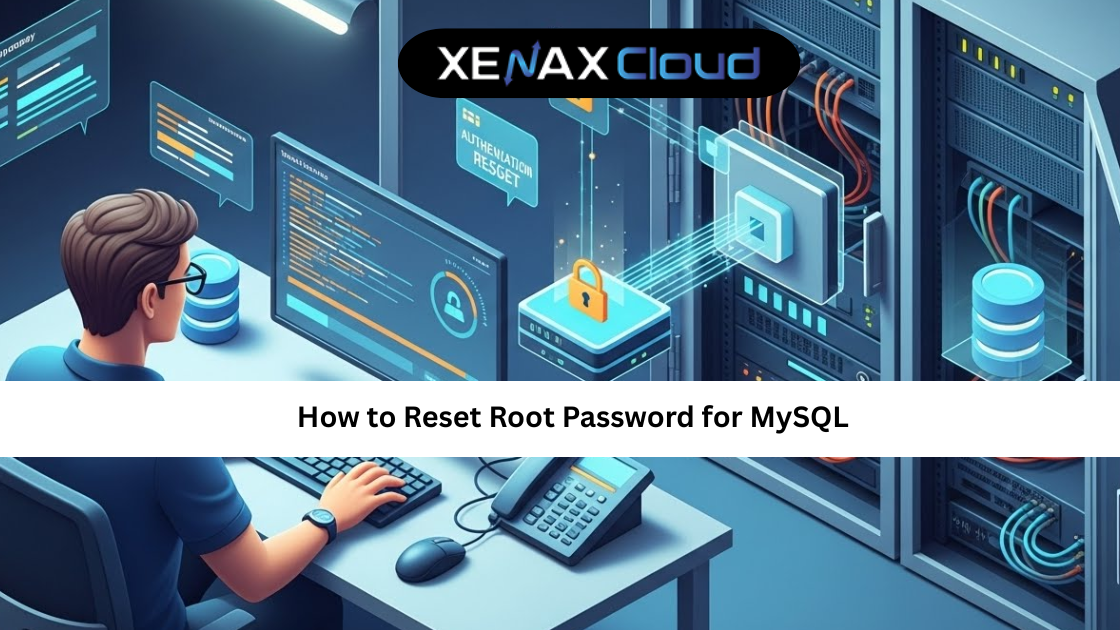In India’s thriving digital landscape, understanding the default port number for http (80), https port (443), and port number of www (typically 80) is essential for IT professionals, developers, and businesses managing web servers. XenaxCloud (https://xenaxcloud.com/), with its India-based data centers, offers hosting solutions with a 99.5% uptime guarantee, optimizing HTTP and HTTPS performance.
This guide explores the default port number for http, https port, and port number of www, highlighting XenaxCloud’s solutions like shared hosting (https://xenaxcloud.com/shared-hosting/), VPS (https://xenaxcloud.com/vps-server/), and cPanel reseller hosting (https://xenaxcloud.com/reseller-hosting/). Optimized for SEO with keywords default port number for http, https port, and port number of www, this article avoids pricing and money-back guarantees, focusing on features and benefits.
What is the Default Port Number for HTTP?
The default port number for http is 80, used by the HyperText Transfer Protocol (HTTP) to:
- Enable Web Browsing: Serve websites to users.
- Handle Requests: Process client-server communication.
- Support Basic Websites: Works with HTML and CMS like WordPress.
XenaxCloud’s shared hosting (https://xenaxcloud.com/shared-hosting/) optimizes HTTP traffic for fast website delivery.
What is the HTTPS Port?
The https port is 443, used by HTTP Secure (HTTPS) to:
- Secure Data: Encrypt communications with SSL/TLS.
- Boost SEO: HTTPS is favored by search engines.
- Ensure Trust: Protects user data on websites.
XenaxCloud provides free SSL certificates for secure https port operations.
What is the Port Number of WWW?
The port number of www is typically 80, aligning with HTTP, as it:
- Serves Web Content: Handles standard web traffic.
- Supports CMS: Powers WordPress, Joomla, and other platforms.
- Integrates with HTTPS: Often redirects to port 443 for security.
XenaxCloud’s hosting ensures seamless port number of www performance.
Why India-Based Hosting for HTTP and HTTPS?
XenaxCloud’s India-based data centers offer:
- Low Latency: Faster HTTP/HTTPS responses for Indian users.
- SEO Advantage: Local servers boost search rankings.
- Compliance: Adheres to India’s Digital Personal Data Protection Act.
- Support: 24/7 assistance in IST via ticket, chat, or phone.
This makes XenaxCloud ideal for default port number for http hosting.
XenaxCloud’s Hosting Features for HTTP and HTTPS
XenaxCloud supports default port number for http and https port with:
- Shared Hosting (https://xenaxcloud.com/shared-hosting/): One-click CMS for HTTP websites.
- VPS Hosting (https://xenaxcloud.com/vps-server/): Custom port configurations for HTTPS.
- Dedicated Servers (https://xenaxcloud.com/dedicated-server/): High-traffic HTTP/HTTPS needs.
- Indian RDP (https://xenaxcloud.com/indian-rdp/): Secure server management.
- Domains (https://xenaxcloud.com/domain/): Professional domain names.
- cPanel Reseller Hosting (https://xenaxcloud.com/reseller-hosting/): Manage client websites.
- Free SSL and DDoS Protection: Secure https port operations.
- JetBackup: Daily backups for data safety.
Features include SSD storage, unmetered bandwidth, and LiteSpeed servers.
How XenaxCloud Enhances HTTP and HTTPS Hosting
XenaxCloud’s hosting offers:
- Free SSL: Enables secure https port 443 for all websites.
- LiteSpeed Servers: Optimizes HTTP traffic on port 80.
- Custom Port Configurations: Adjust settings on VPS for advanced needs.
- Security: DDoS protection and firewalls for safe operations.
Use Indian RDP (https://xenaxcloud.com/indian-rdp/) for secure management.
Comparing XenaxCloud with Competitors
XenaxCloud vs. competitors for default port number for http hosting:
- Hostinger: Affordable but limited India-specific optimizations.
- Bluehost India: Reliable for HTTP, but XenaxCloud’s LiteSpeed excels for HTTPS.
- MilesWeb: Good performance, but XenaxCloud’s 99.5% uptime and JetBackup stand out.
XenaxCloud leads for https port and port number of www hosting.
Integrating HTTP and HTTPS with XenaxCloud’s Ecosystem
XenaxCloud integrates:
- Shared Hosting: HTTP websites with CMS support.
- VPS Hosting: Custom HTTP/HTTPS configurations.
- Dedicated Servers: High-traffic HTTP/HTTPS projects.
- Indian RDP: Secure port management.
- Domains: Professional domain names for HTTP/HTTPS.
- cPanel Reseller Hosting: Manage client websites with cPanel.
This ecosystem supports robust default port number for http operations.
Advanced Features for HTTP and HTTPS Hosting
XenaxCloud offers:
- LiteSpeed Cache: Boosts HTTP performance on port 80.
- Custom Firewall Rules: Secure https port 443.
- SSH Access: Advanced management via Indian RDP.
- Free CDN: Faster global HTTP/HTTPS delivery.
These enhance port number of www performance.
Getting Started with XenaxCloud for HTTP and HTTPS Hosting
- Visit https://xenaxcloud.com/ and select a hosting plan.
- Register a domain (https://xenaxcloud.com/domain/).
- Configure HTTP/HTTPS via cPanel or VPS.
- Request free migration for existing websites.
Our 24/7 IST support ensures seamless default port number for http setup.

FAQs
What is the default port number for HTTP?
Answer: The default port number for http is 80, supported by XenaxCloud’s shared hosting for fast web delivery.
What is the HTTPS port?
Answer: The https port is 443, enabling secure connections with XenaxCloud’s free SSL certificates.
What is the port number of WWW?
Answer: The port number of www is typically 80, aligning with HTTP, supported by XenaxCloud’s hosting.
Why choose XenaxCloud for HTTP/HTTPS hosting?
Answer: India-based servers, 99.5% uptime, and LiteSpeed ensure performance for default port number for http.
Can I manage HTTP/HTTPS remotely?
Answer: Yes, with Indian RDP (https://xenaxcloud.com/indian-rdp/) for secure access.
Does XenaxCloud support CMS for HTTP sites?
Answer: Yes, one-click WordPress installs via shared hosting (https://xenaxcloud.com/shared-hosting/).
What security features protect HTTP/HTTPS?
Answer: Free SSL, DDoS protection, and JetBackup ensure safe https port operations.
Conclusion
Master the default port number for http and https port with XenaxCloud’s India-based hosting. With a 99.5% uptime guarantee and robust solutions, XenaxCloud optimizes port number of www performance. Visit https://xenaxcloud.com/ to start today.






